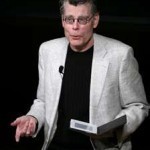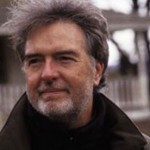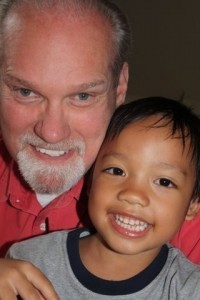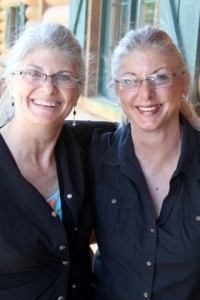Jerry B. Jenkins's Blog, page 37
October 4, 2011
Start Small
One of the most common mistakes new writers make is trying to start their career with a book. That's like starting your education in graduate school. Start small. Write for the joy of it, to see your name in print, even if you're giving your work away or being paid in copies. You need to work countless clichés out of your system, tone writing muscles and learn both the business and the craft.
I always encourage writers to approach magazines and newspapers and get experience writing articles before tackling their novels. See what your stuff looks like in print, and be your own toughest critic.
Learn everything there is to know about how to submit your material, then start small. Write for local publications, and when you have scored some clips, try regional magazines, then national. You'll stub your toe occasionally, but you'll learn. You'd be surprised at how many submissions magazine editors get from people who don't even know to double-space their work.
An even larger issue is trying to write on issues beyond your grasp as a beginner—writing a memoir when you're only in your twenties, for instance. While your story may be huge and significant, you'll need years of mature reflection before you can make sense of it and present it so it will have a real impact on readers. Even if you're a mature thinker already, are you far enough along with your writing skills to do justice to the topic?
I have been a church-going Christian all my life, and attended Bible college right out of high school, but even today I wouldn't dream of trying to tackle theological and biblical subjects on my own. If Dr. Tim LaHaye can be honest and self-aware enough to admit that—despite his many considerable gifts and abilities—he's not a fiction writer, I must concede that I'm no scholar or theologian.
As a magazine editor, I once received a letter from a teenager querying me on a 1,500-word, first-person piece entitled "The Meaning of the Universe." Attempting such a project is akin to my trying to write a brief essay that would solve the conflict in Northern Ireland. There may well be those with experience and expertise and legitimate insight into that, but I'm not one of them.
We write to learn, but let's remember that a little knowledge can be dangerous. Either make thorough use of interviews with experts in the area you wish to write about, or stick to what you really know.
September 27, 2011
Check Out My Interview with Stephen King

http://www.writersdigest.com/writing-articles/by-writing-goal/improve-my-writing/writing-advice-from-stephen-king-and-jerry-jenkins
September 20, 2011
Making Description Work for You
Wednesday's Writing on Writing
I use description sparingly, because as a a reader I find it deadly boring. How many ways can you describe sunrises, sunsets, moonlight peeking through tree branches? Now, if you could handle description the way Charles Frazier (below) did it in his debut masterpiece, Cold Mountain, you'd never lose my attention. Here's a taste of Frazier's prose: 
"The hayfield beyond the beaten dirt of the school school playground stood pant-waist high, and the heads of grasses were turning yellow from need of cutting. The teacher was a round little man, hairless and pink of face. He owned but one rusty black suit of clothes and a pair of old overlarge dress boots that curled up at the toes and were so worn down that the heels were wedgelike. He stood at the front of the room rocking on the points."
Some writers make you want to emulate them. Frazier makes me want to surrender and simply read.
For me, often the best way to make description work in my fiction is to leave it out and depend on the reader's theater of the mind. If you can come close to what Frazier does above, go for it.
Other writers go for economy. The late great mystery writer John D. MacDonald once described a character as "knuckly." It evoked a complete picture in my mind.
September 13, 2011
Coming Up with Story Ideas
Wednesday's Writing on Writing
Readers and budding writers often ask, "Where do you get your ideas?"
My glib answer is, "I make 'em up."
The problem is, if you're a wannabe writer, unless you bring to the table some creative ideas, you're going to be ignored. Few utility-type writers-of-all-trades are in demand. Editors and publishers are looking for good writers, sure, but primarily they are looking for fresh ideas.
People also ask if I'm afraid I will run out of ideas. No, I'm afraid I will run out of time to pursue the ideas I already have. Learn to write, polish your prose, hone your craft, but become an idea producer so you always have something in the hopper.
I find that my novels often come from combinations of two ideas. I see something in the paper or hear it on the news, file it in a recess of my brian, and forget about it. Until something else catches my attention, interacts with the original, and produces something interesting to me. (I say "to me," because I hope there are a lot of potential readers out there like me who might be fascinated by the hybrid idea.)
I've been fascinated that my son and daughter-in-law were moved to adopt a four-year-old Thai named Max.  They had all sorts of good motives, not the least of which was to protect at least one child from human trafficking when he gets older. That interesting tidbit combined with something my wife and I learned on a January trip to China–about the fact that selective abortions there mean fewer girl babies are born. Males are preferred.
They had all sorts of good motives, not the least of which was to protect at least one child from human trafficking when he gets older. That interesting tidbit combined with something my wife and I learned on a January trip to China–about the fact that selective abortions there mean fewer girl babies are born. Males are preferred.
Now I have my Precint 11 cop thriller triology going, and I'm looking for something intriguing to get my main character out of Chicago and involved in an emotional case. Might human trafficking, the danger to girl babies in China, give him a reason to travel to Beijing on a case?
Book three in the Precint 11 trilogy will be called The Breakthrough and will release next year.
September 6, 2011
Maintaining Quality
Wednesday's Writing on Writing
When I agree to do a piece of writing, even a column for a free newsletter, I give it my all, the same as I do for a book with a seven-figure advance. Regardless the payment, my name will appear on the piece, and I don't want the reader to see a difference in quality between a piece I was paid highly for and a piece I did for less.
name will appear on the piece, and I don't want the reader to see a difference in quality between a piece I was paid highly for and a piece I did for less.
Don't let success or pressure change you. If you become a success, stick with what got you there. When a baseball team gets to the World Series there's a tendency to do things differently, to raise the bar, push to new heights. The players in the lineup are juggled, a surprise starting pitcher is thrown in. The team feels pressured to improve, as if throwing harder or swinging faster will bring victory. The real key, however, is to keep doing what they did to get there.
The same can happen to a writer. You have a bestseller and you start thinking you have to succeed with the next one too so you aren't embarrassed or seen as a fluke. You try to blow the doors off to stay on the bestseller charts. But what does that mean? Imitating the elements you think made the difference? Can you write faster, harder, more enthusiastically? Should you write standing up?
Publishers face the same temptation. With more advance and promotion dollars committed to a bestselling author's new book, they sometimes feel the pressure to have more spoons in the soup, more people from more departments with more input into the content.
What we all need is a deep breath and a decision to keep doing what we've been doing, assuming it will work again.
The fact is, the market makes or breaks sales. Neither author nor publisher has much say or control over how many books sell. What you can control is how you write your next book. Work to your potential and let the results go. The best you can be may not put you on the critics' short list.
If you try to write with a certain sales goal in mind, that is pure presumption. Who could ever have foreseen the success of the Left Behind books? It would have been pointless for me to have attempted to forecast sales based on the past. And doing so wouldn't have helped me write the books I needed to write. "A man's heart plans his way, but the Lord directs his steps" (Proverbs 16:9).
August 30, 2011
The Betrayal…
…second novel in the Precinct 11 cop thriller trilogy releases from Tyndale tomorrow. Here's what Publishers Weekly said about it:
The Betrayal
Jerry B. Jenkins. Tyndale, $14.99 trade paper (400p) ISBN 978-0-4143-0908-8
 Jenkins has moved from end times (the megaselling Left Behind series) to crime times, and it's a smart move. Boone Drake is a Chicago police detective who was almost fatally shot at the end of the earlier novel (The Brotherhood) in the police thriller series Precinct 11. As he recovers, Drake faces a profound conundrum: someone in the Chicago PD appears to have leaked information to the shooter, violating the strict code of police solidarity. Worse, evidence suggests it could be his new girlfriend Haeley. Jenkins is a consummate novelist: his plotting is nicely sneaky, his dialogue crackling. Evangelical Christian fiction plot elements logically fit in a life-and-death crime thriller; a lot of people talk to God in high stakes situations. The motivation of the villain might be better developed, but that's relatively minor. This is good popcorn, with more to come.
Jenkins has moved from end times (the megaselling Left Behind series) to crime times, and it's a smart move. Boone Drake is a Chicago police detective who was almost fatally shot at the end of the earlier novel (The Brotherhood) in the police thriller series Precinct 11. As he recovers, Drake faces a profound conundrum: someone in the Chicago PD appears to have leaked information to the shooter, violating the strict code of police solidarity. Worse, evidence suggests it could be his new girlfriend Haeley. Jenkins is a consummate novelist: his plotting is nicely sneaky, his dialogue crackling. Evangelical Christian fiction plot elements logically fit in a life-and-death crime thriller; a lot of people talk to God in high stakes situations. The motivation of the villain might be better developed, but that's relatively minor. This is good popcorn, with more to come.
August 23, 2011
Special Invite for Tomorrow
Wednesday's Writing on Writing
DON'T MISS THE INVITATION BELOW
Forty years ago, when I started looking for work in Christian publishing, my newspaper sports writing colleagues thought I was nuts. They knew I was a Christian, but they couldn't imagine that writing and publishing in the religious arena would be anything but dead boring.
I soon landed a job as editor of a high school Sunday school paper for Scripture Press Publications and began there late in 1971. The weekly publication, FreeWay, which was produced in thirteen-issue quarterly packets, focused on first-person as-told-to stories. I bought or assigned many of these stories, but I had to write more than half of them. That meant traveling all over the country, interviewing, and writing people stories in the voices of my subjects. It was like journalism boot camp, and I had the time of my life.
produced in thirteen-issue quarterly packets, focused on first-person as-told-to stories. I bought or assigned many of these stories, but I had to write more than half of them. That meant traveling all over the country, interviewing, and writing people stories in the voices of my subjects. It was like journalism boot camp, and I had the time of my life.
As editor of the little paper, I also had to quickly learn all the technical aspects of publishing. I wrote the headlines and captions, did the layout, worked with the artists and photographers, even decided where page numbers went.
My boss there was Stanley C. Baldwin, a quiet, unassuming, interesting character who was also a local pastor. He not only edited everything I wrote, but he second-edited everything I edited. Every single day I resolved to present to Stan a piece of writing or editing he couldn't improve. And every day the work returned to my inbox bearing his marks showing the things I had missed.
His eagle eye made me work harder and harder, and while I never got to the point where he couldn't change a thing (a good lesson—we all always need another pair of eyes on our work), over the course of two years I saw fewer and fewer adjustments coming back.
Working under Stan was the best schooling I ever got. I became a ferocious self-editor, and I still work to polish my writing with each pass. My goal is to submit the cleanest manuscripts I can. To this day the most gratifying thing I can hear from a publisher is "Our editors barely needed to touch it."
Writers Digest University Webinars ([email protected]) invites you to attend my Webinar tomorrow:
"Become a Ferocious Self-Editor" presented by Jerry B. Jenkins
Thursday, August 25, 2011 1:00 PM – 3:00 PM EDT
Check Out my Writer's Digest Webinar Thursday!
Years ago I worked under an editor who could always improve on my work. I vowed to polish my writing until he couldn't find one more thing to change.
I never quite achieved that-his eye was that sharp, but I did get better, and I learned to be a ferocious self-editor. Writing is rewriting and can be the most fun part of the creative process.
Self-editing to the point where I'm happy with every word I submit has become a hallmark of my work and one of the keys to my publishing more than 175 books with over 70 million sales. Like anyone else, I still need that editor's second pair of eyes, but nothing gives me greater satisfaction than to hear that hardly anything had to be changed.
Writer's Digest has asked me to teach you the art self-editing in a Webinar scheduled for Thursday, August 25 at 1 p.m. Eastern Time. I'll tell you everything I've learned over the years, We'll look at samples, there'll be time for Q & A, and hopefully you'll go on to sell your writing like never before.
Check out all the details at http://bit.ly/pqTZn6, and I'll look forward to seeing you on line Thursday.
August 18, 2011
Family Reunion Fun
At a recent confab of Dianna's side of the family, our son Chad and daughter-in-law Christa's eldest, Isaac (below with a chocoloate ice cream goatee), went to Dianna's sister Sarah (left below) and started calling her Grandma. I said, "Isaac, where's Grandma?" He pointed at Sarah like I was dense. I pointed across the room to his real grandma, Dianna (right below) and said, "Then who's that?"
His look was of pure astonishment. He escaped from Great Aunt Sarah in a flash and wouldn't even look at her the rest of the reunion. It was as if she were Bizarro Grandma.
August 16, 2011
Making Clean Point of View (POV) Changes
Wednesday's Writing on Writing
The story I wanted to tell in Left Behind was so big, I needed another perspective character, someone who could be where Rayford Steele couldn't be. 
While Rayford was home with his daughter or getting back to flying when the air routes were reopened, someone had to be globe-trotting. I needed a pair of eyes in New York, then London, then Israel. It was too much to expect of a pilot (Rayford) without turning him into a comic book hero.
In chapter one, while Rayford is still trying to talk himself into seeing Hattie, we move from the cockpit to first class. And to be sure to keep the reader with me, to show a shift not only in seeing but in perspective, I inserted an extra line space and even added a horizontal line.
There's no secret to changing perspective characters. You must be clear and courteous to the reader, just as you would be to a house guest. I wanted to leave zero doubt in the reader's mind what was going on. My solution in Left Behind, besides the obvious space and line, was to immediately establish the new perspective character:
"Next to a window in first class, a writer sat hunched over his laptop…. At thirty, Cameron Williams was the youngest ever senior writer for the prestigious Global Weekly…"
From this point on, Cameron (Buck) will share the point-of-view load. Until book five in the series, he and Rayford are the only two perspective characters. We go only where they go, hear their thoughts, see what they see. And every time the story switches from one to the other, I made sure to give the reader clear clues.
After several pages establishing Cameron and foreshadowing how events will affect him, I switched back to Rayford with a space and a line. But I wanted it even more obvious than that:
"Not sure whether he'd follow through with anything overt, Captain Rayford Steele felt an irresistible urge to see Hattie Durham right then."
The above reminds the reader of Rayford's internal struggle, but just to be sure the readers could follow the change in perspective, I reverted to whole names again for both him and Hattie. I didn't want my guests wondering what was going on.





